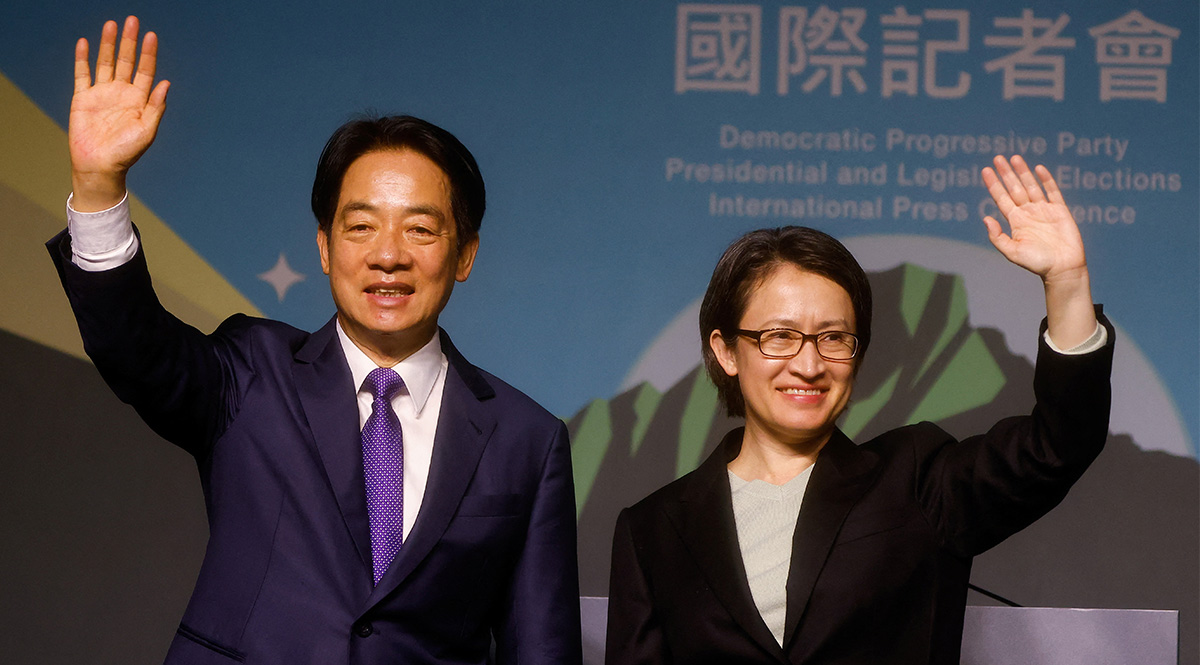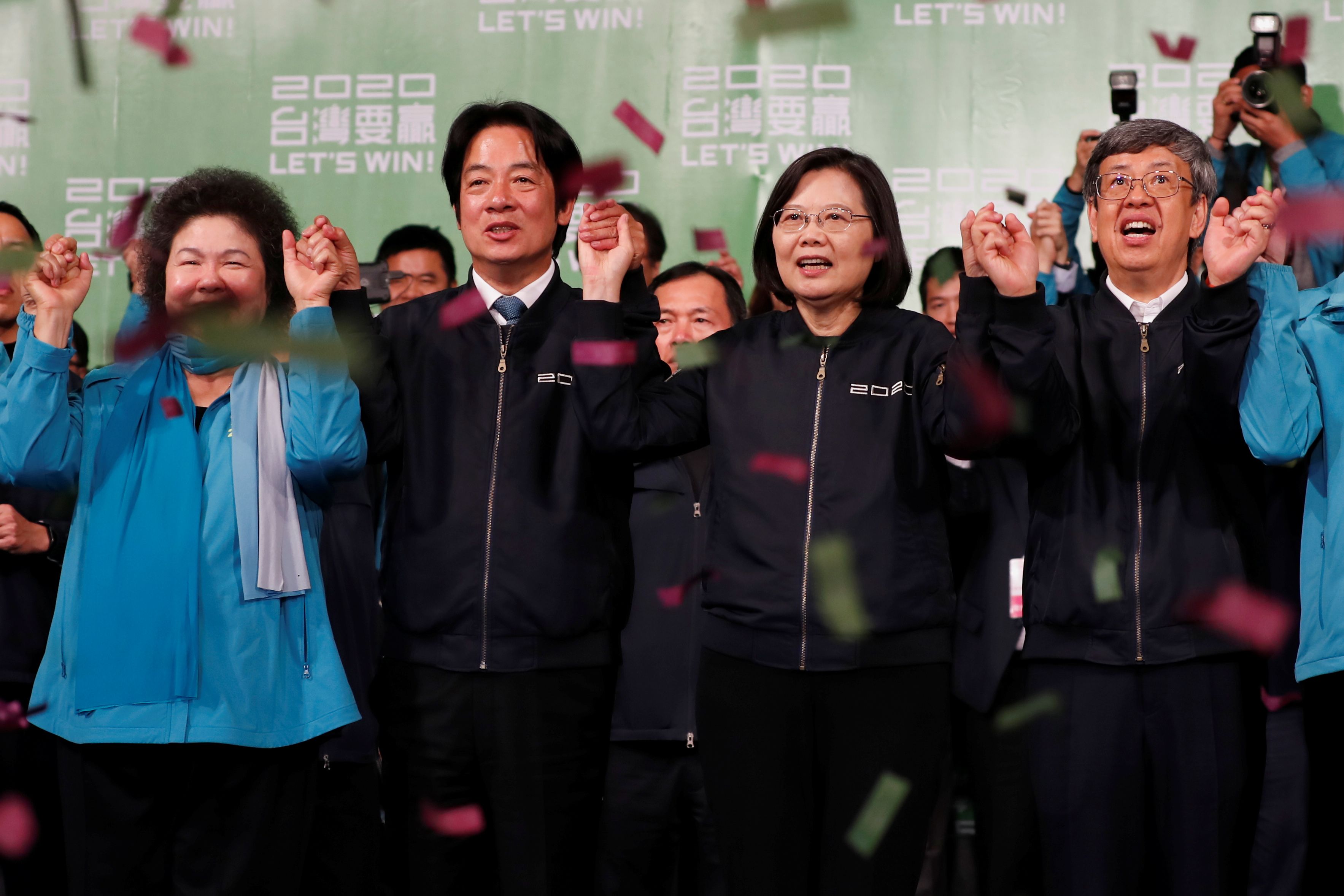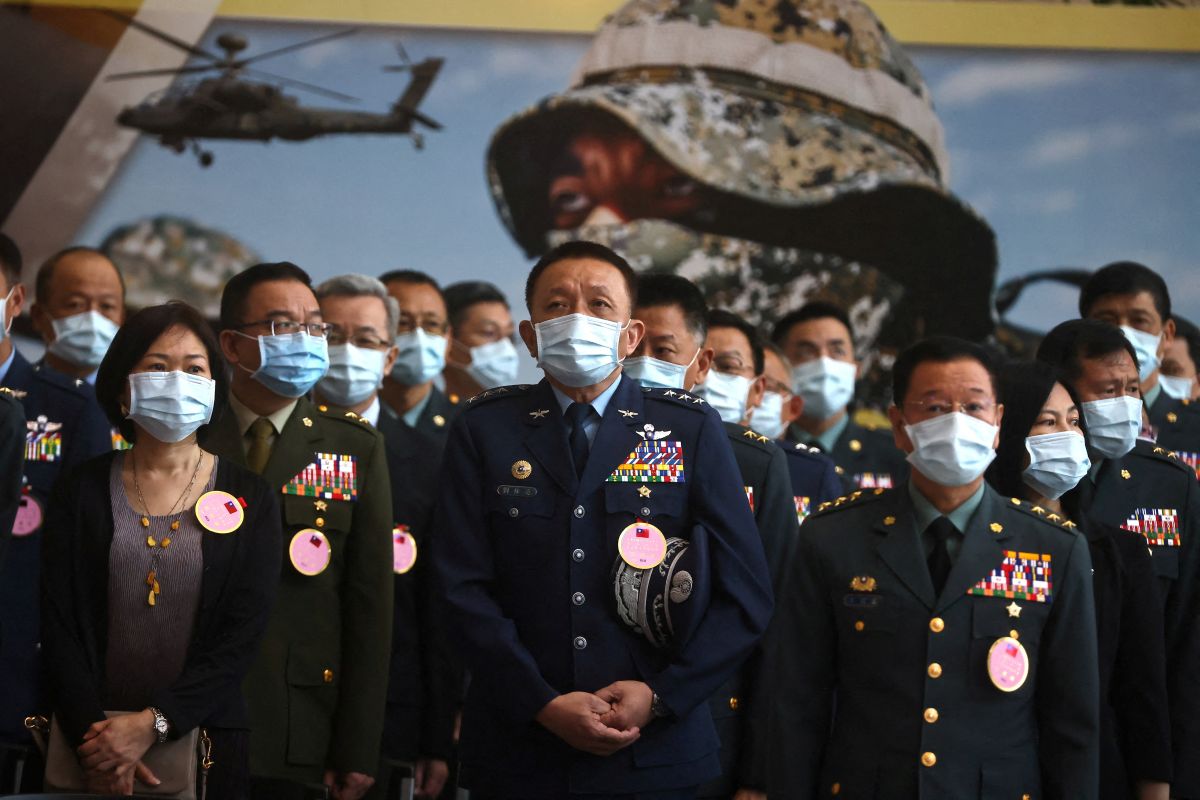Taiwan Seeks Continuity After the Elections
On 13 January, Taiwan held presidential and parliamentary elections. Vice President Lai Ching-te of the Democratic Progressive Party (DPP) won the presidency. The DPP, however, lost the majority in the unicameral parliament, which will make governing more difficult. China, which is hostile in particular to the DPP, will continue hybrid warfare against it. The announcement of a continuation of policy and the election of Hsiao Bi-khim as vice-president will stabilise Taiwan-U.S. relations. Lai also wants to continue cooperation with Europe to diversify Taiwan’s relations and reduce its dependence on China.
 ANN WANG / Reuters / Forum
ANN WANG / Reuters / Forum
What were the election results?
Vice President Lai Ching-te from the ruling DPP (the so-called “green camp”) won the presidential election with about 5.5 million votes and 40.05% support (significantly less than outgoing President Tsai Ing-wen in 2020, who received, respectively, 8 million votes, or 57%). Hsiao Bi-khim, Taiwan’s former representative to the U.S., became vice-president. Second was Hou You-yi of the Kuomintang (KMT, the so-called “blue camp”) with 33.5% of the vote, and third was Ko Wen-je of the Taiwan People’s Party (TPP), established in 2019, who received 26.5%.
In elections to the unicameral 113-seat parliament (the Legislative Yuan), the opposition KMT won the most seats, with 52 (up from 38 four years ago). The DPP gained 51, losing its majority (it had 61 seats). The TPP gained eight seats, three more than in the previous election. Two seats went to independent candidates that are close to the KMT. Turnout was 71.86% (74.9% in 2020).
What new things have the elections brought to Taiwanese politics?
For the first time, the ruling party won the presidency for a third consecutive term. However, the loss of the majority in the Legislative Yuan means the DPP will probably form a minority government. This would be a repeat of President Chen Shui-bian’s two terms (2000-2008). Although Taiwan has a semi-presidential system (parliament does not approve appointments for prime minister and ministers), the new cabinet will find it more difficult to govern, as it will need a majority to pass through laws.
The TPP’s good record makes it likely that it will play a pivotal role in parliament. Ad hoc cooperation is possible between the KMT and TPP, which together have the majority (60 seats). Ko Wen-je’s 3.7 million votes and more seats for the TPP may indicate that the process of breaking up the long-standing KMT-DPP duopoly is progressing. Most likely, this is the result of the fading of the main cleavage between the KMT and DPP, which is the attitude toward China and identity issues (pro- vs. anti-Chinese; and Chinese vs. Taiwanese, respectively), and voters are looking for a party that will address mainly socio-economic issues.
During the campaign, Lai repeatedly talked about his close cooperation with Hsiao. Bearing in mind her popularity and international experience, she may seek to develop a new model of vice presidency, one more active than before (and going beyond its role written in the constitution) and focused on foreign policy.
What policy will President Lai pursue towards China?
Although before his nomination for the presidency, Lai was perceived as more radical than Tsai (e.g., in 2017, he described himself as a “pragmatic worker for Taiwan independence”), during the campaign he advocated a continuation of the current president’s approach. Like Tsai, he argues that Taiwan is a sovereign state, so there is no need or plan to declare independence. He rejects the so-called 1992 Consensus (the agreement between the KMT and the CCP which entails that “there is one China, but different interpretations of it”, although China has never recognised the second part of that phrase), equating it with the “one China principle” and the “one country, two systems” concept. He advocates maintaining the status quo, which he understands as diversifying international cooperation, including with democratic countries, and thereby reducing dependence on China, strengthening Taiwan’s defence and deterrence capacity. It supports stable and peaceful relations with China and is open for contacts with the PRC, based on mutual respect and equality.
How has China reacted and what will it do?
Shortly after the results were announced, spokesmen for China’s Taiwan Affairs Office and the Foreign Ministry stated that Taiwan is part of China and its internal affairs, so the island’s elections changes nothing in this regard and the DPP does not represent the majority of the people. During the campaign, China accused Lai—recalling his statements made a few years ago—of being openly pro-independence.
While a third consecutive DPP presidency is not good news for China, this outcome was expected. The PRC will test the new president by demanding recognition of the 1992 Consensus as the prerequisite for the resumption of bilateral contacts. China will continue and intensify hybrid activities using new technological capabilities (e.g., generative artificial intelligence) to undermine the Taiwanese people’s confidence in the DPP and the U.S. Possible escalation of actions, such as import embargoes or expanded military posture, are more likely around the inauguration of Lai’s presidency on 20 May. Given domestic problems and a desire for stability in the coming months, PRC pressure on Taiwan may be moderate. There is a possibility of attempts to influence KMT and TPP legislators to block certain bills in the Legislative Yuan.
What do the election results mean for Taiwan’s relations with the U.S. and Europe?
We should expect to see closer defence cooperation and an intensification of Taiwan’s contacts with the U.S. The president-elect’s assurances that he will continue Tsai’s policies and Hsiao’s good contacts with the U.S. are expected to guarantee stability in U.S.-Taiwan relations. In the coming months, the Americans will work with Taiwan’s transition team. However, the U.S. is not expected to move away from so-called strategic ambiguity, which the Americans see as a way to deter China from attacking Taiwan, and Taiwan from declaring independence.
Also in the case of Europe-Taiwan relations, further deepening of cooperation is likely. Europe is one of the directions for Taiwan to diversify its economic relations and reduce its dependence on China. The recent intensification of mutual contacts and announcements of Taiwan’s greater economic activity in Europe is a good evidence. Since Russia’s invasion of Ukraine, the role of Central Europe has also increased. Taiwan is not only analysing Ukraine’s experience in fighting against the aggressor but also Russia’s actions against NATO’s Eastern Flank. Taiwan has also been deeply involved in helping Ukraine. Taiwan is counting on—as Lai said in the campaign—on Europe’s long-term and consistent interest in Taiwan. Intensifying contacts could increase deterrence of China and maintain peace in the Taiwan Strait.





.jpg)